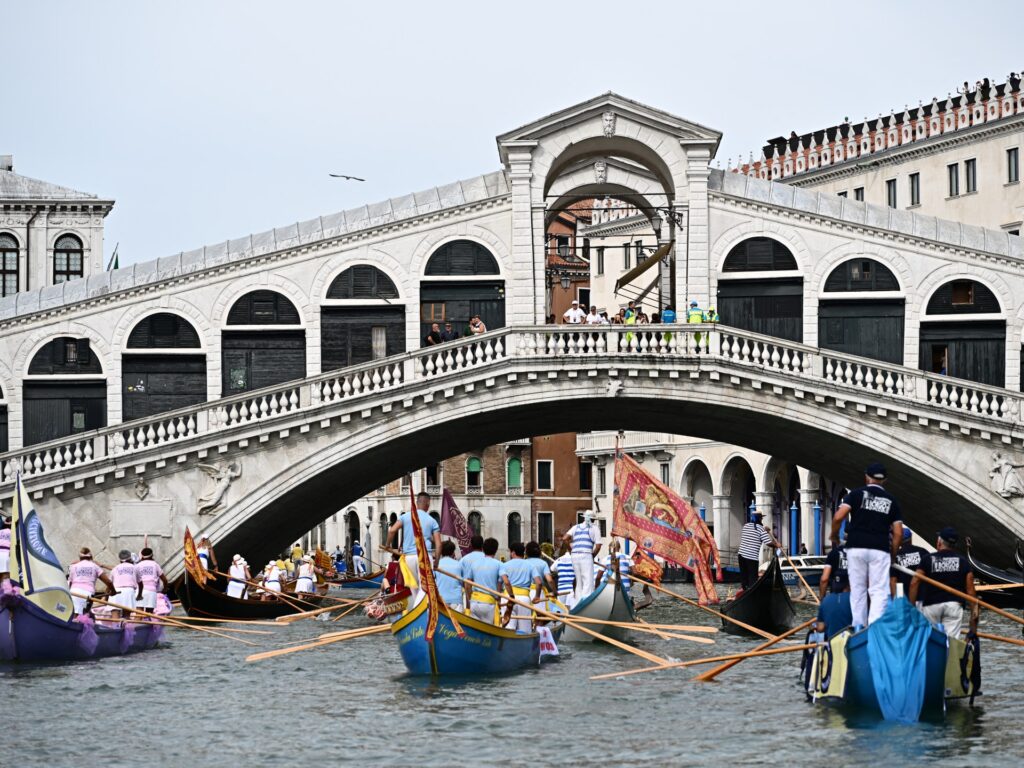The mayor hopes the plan will serve as a model for other places struggling to cope with a surge in tourists.
Starting in April next year, Venice will trial admission fees and limits on the number of visitors per day at overcrowded centers, a plan hailed as a world first by Italy’s mayor.
Local authorities said at a press conference Thursday that the system is designed to manage the flow of tourists when visitor numbers peak.
Mayor Luigi Brugnaro said: “This is the first initiative of its kind in the world to make a city reservable.”
According to the scheme, day-trippers will be charged €5 to enter the city center between 8:30 a.m. and 4:00 p.m. from April 25 to May 5, the peak of the tourist season. ($5.45).
This rate also applies to the remaining weekends in May and June, and the first two weekends in July.
Travelers must book their visit online and obtain a QR code that is checked at specific entrances to allow access to the city’s historic district.
The restrictions do not apply to smaller islands within the lagoon, such as Murano, which is famous for its glass-making industry.
Authorities have struggled for years over how best to regulate the millions of tourists who flock to the fragile lagoon city to enjoy its picturesque canals and tourist attractions such as St. Mark’s Square and the Rialto Bridge. For some time now, we have been debating without taking any action.
The historic center has a permanent population of about 51,000 people, but many worry that the city, which is already subject to regular flooding, will not be able to cope with the growing number of visitors.
Plans to sell tickets have been repeatedly postponed over fears it would curb tourist income and undermine freedom of movement.
However, city authorities ultimately decided to go ahead with the experiment after UNESCO warned that Venice could be listed as a world heritage site.
Residents or natives of Venice, students, workers and homeowners in the city are exempt from the scheme, but access for children under 14 is free once they register.
Failure to comply with the measures will result in fines of between 50 and 310 euros ($54 and $340).
Brugnano said authorities are prepared to make changes to ensure the system works, but that it “could serve as a model for other fragile and sensitive cities that must be protected.” he suggested.

